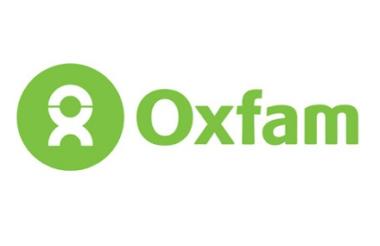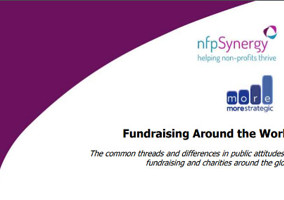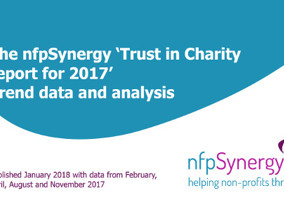Charities must build “authentic” brands if they want to gain trust, Oxfam’s director of engagement has said.
Nicola Tallett was speaking at the Westminster Social Policy Forum on charity fundraising yesterday. Tallett discussed how some charity brands have lost public confidence, and that “saying and doing exactly what you believe” is crucial in rebuilding trust.
“It has been a tough five years,” for charities and “trust is not given freely at the moment,” said Tallett.
“People do not trust charities as much as they used to” and “as a result income is going down,” she added.
Tallett spoke about how this is a sector-wide issue, as data from the Commission suggests that public trust in charities is not as good as it used to be. The reasons for this have included media stories and a lack of confidence in how donations are spent.
But Tallett noted that charities “do well” compared to banks, councils and MPs, but not “as well as the average man on the street”.
She said this matters because “those that trust charities are twice as likely, 24 per cent versus 11 per cent, to make a regular donation”.
Given this trend, Tallett discussed how to regain confidence in charities. She said trust “has plateaued” but “ideally we would be rebuilding our trust”.
This is why Oxfam is now focusing on “authenticity” in order to build trust in its brand.
Case Study: ‘A real impact, a real story being told’
Tallett used the example of a recent campaign 'second-hand September', as one of the ways Oxfam is “trying to create authenticity”.
The campaign asked people to sign a pledge, saying they would only buy second-hand clothes in the month of September.
She said that the campaign “aligned to our history and our mission” and “did what we were saying”. The reason for this was two fold. First, because Oxfam has a long history of selling second hand clothes, and also because the charity works with people in poverty, who are disproportionately affected by the climate emergency.
The brand “authenticity” also meant using sustainable resources in marketing for the campaign, and raising awareness of the way in which the climate emergency disproportionately impacts those living in poverty.
Tallett said Oxfam also “thought about who could tell our story” to retain authenticity. Oxfam asked social media influencers and volunteers to broadcast the campaign because that acknowledges that people’s trust lies with other people, not solely in charities.
She said a “volunteer telling our story because he really believed it” created “a real sense of authenticity in the brand”.
Tallett said this emphasis on authenticity enabled Oxfam to receive support for its brand.
“What happened at the end of this is we had over 60,000 pledge”, she said. If each person that pledged stuck to the pledge, they would have “saved our carbon footprint the same amount as driving a car around the world 200 times.”
Tallett concluded that Oxfam's strategy had made “a real impact” because it was “a real story being told and it was authentic and it was trusted because of the people that were telling it”.
|











